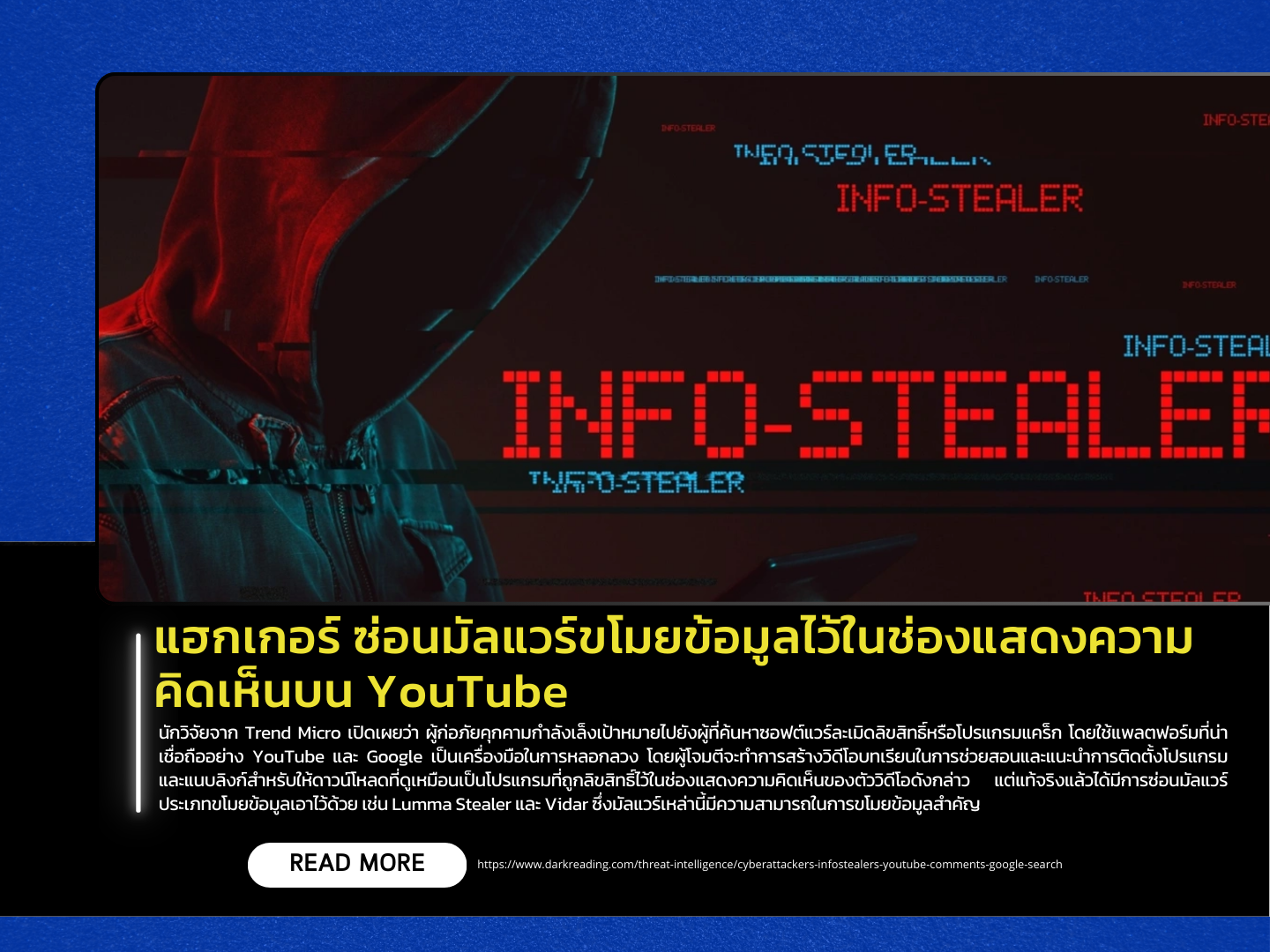19/68 Wednesday, January 15, 2025

Researchers from Trend Micro have disclosed that cyber attackers are targeting individuals searching for pirated software or cracked programs by using trusted platforms like YouTube and Google as tools for deception. The attackers create tutorial videos guiding users on how to install software, embedding download links in the video comment sections that appear to be legitimate software. However, these links conceal data-stealing malware such as Lumma Stealer and Vidar, capable of extracting sensitive information like passwords, bank accounts, and digital wallets from their victims. To further obfuscate their operations and evade detection, attackers use reputable file hosting services like Mediafire and Mega[.]nz.
The attackers enhance the credibility of their campaigns by embedding their malicious content within Google search results and spreading the malware using shortened links. The distributed files are often encrypted and protected with passwords to bypass security systems. These techniques trick users into believing that the downloaded files are legitimate installations of popular software, such as Adobe Lightroom or Autodesk, allowing the malware to spread easily while avoiding early detection.
To mitigate this threat, users are advised to avoid downloading pirated software and always verify links before clicking. Additionally, using up-to-date anti-malware software is essential. Organizations should enhance employee awareness of these risks through training programs and implement robust threat detection systems to safeguard critical data from increasingly sophisticated cyberattacks.
